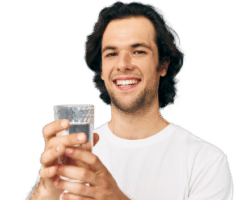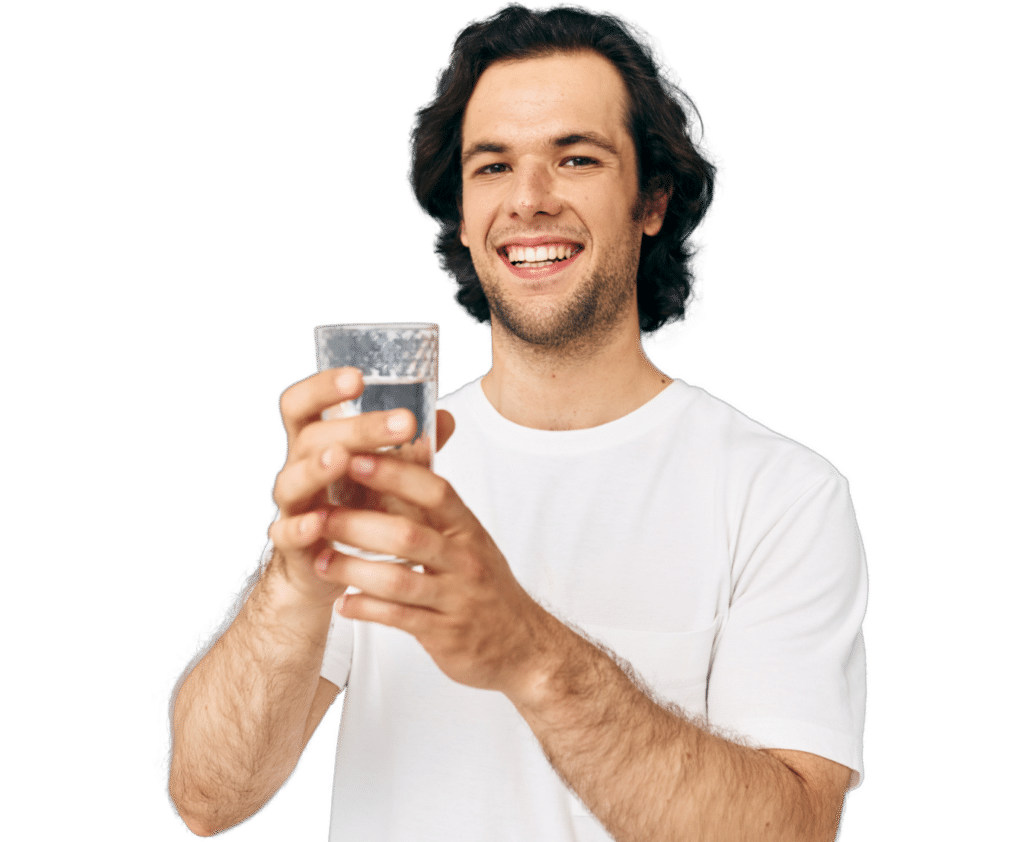To Filter Or Not To Filter
The health of our water is paramount here in Riverside, where hard water is so common. Many households turn to water softening systems to lower the hardness of their water, but is that really enough? Unfiltered water can carry contaminants and harmful substances. These will eventually work their way into the water you drink!
Walter filtration systems are a reliable way to keep your drinking water clean, healthy and refreshing. Environment Water Filtration has helped Riverside homeowners with their water filtration needs for years. Quality water is something we all deserve, so let’s look at how proper filtration can improve it at home.
The Difference Between Water Filtration And Water Softening
Water softening and filtration are both important processes that serve different functions. The “softening” of water removes minerals like calcium and magnesium, replacing them with sodium. This makes for better cleaning at home and less stress on your pipes. Water filtration helps get rid of contaminants to keep your water healthy and clean. While their purposes are different, they both provide you with better water.
Can A Water Filter Make Hard Water Soft?
A water filtration system removes impurities, but it doesn’t make your water soft. Hard water is characterized by a high quantity of minerals. Removing these minerals is a service covered by a water softener. A filter can get rid of contaminants, but it won’t remove hardness on its own.
Does A Water Softener Filter Water?
Water softeners can remove calcium and magnesium to make water soft, but they are not designed to be comprehensive water filters. While the process of removing minerals filters them out of your water, it won’t ensure your water’s health and cleanliness. To eliminate contaminants and other substances, you will need a filter.
Can You Filter Softened Water For Drinking?
Filtering your softened water is a good way to make it cleaner and better for your health. Filtration can also make soft water safer for people who need to avoid large quantities of sodium, such as those with high blood pressure.
Here are some of the benefits of introducing filtered soft water to your home:
- Water contaminants — including potentially dangerous substances — can be removed using a filter.
- Filtered water can lower sodium levels, which are increased by the softening process. If high sodium is a risk for you, filtration can make your water safe to drink.
- Salt used in softeners can sometimes raise sodium and chloride levels in the environment once discharged. A filter can prevent this and protect your local environment.
- Some people find filtered soft water to have a better taste compared to the unpurified kind.
By ensuring your water is both softened and filtered, you can improve the health of yourself, your piping system and even the environment. You can start the process by reaching out to Environment Water Filtration today!
Choosing A Water Filter
Not all filter methods are the same. While they all endeavor to purify your water of contaminants, deciding on one depends on your water treatment goals. Some people might seek to remove specific substances. Others might be more focused on lowering hardness. You should consider your situation and needs when choosing which method to use.
Reverse Osmosis
A reverse osmosis (RO) filter removes all kinds of contaminants. These can be chemicals, bacteria, viruses, dissolved minerals and more. They utilize a semipermeable membrane to get rid of these substances. This is an ideal choice for someone interested in making their water as clean as possible.
Activated Carbon Filtration
Activated carbon filters attract and absorb impurities like chlorine, volatile organic compounds (VOCs) and some chemicals. It is most effective for chemical removal. These versatile filters should appeal to those who want the best-tasting water.
Ion Exchange
Commonly used in water softeners, the ion exchange method gets rid of calcium, magnesium and certain heavy metals. It serves to lower the hardness of your water. If the water in your area is particularly hard, this could be the method for you.
UV Disinfection
Ultraviolet light can be used to wipe out bacteria, viruses and similar microorganisms. The UV method doesn’t need to use chemicals to accomplish this. This might attract homeowners interested in water disinfection and negating waterborne diseases.
Kickstart Your Riverside Water Filtration
Keeping your water healthy and clean isn’t just a matter of getting an installation. You need an ally in Riverside who will work with you to find out what filter is best for your home. For this and any other water filtration concerns, you can turn to Environment Water Filtration. Contact us today so we can get started!




